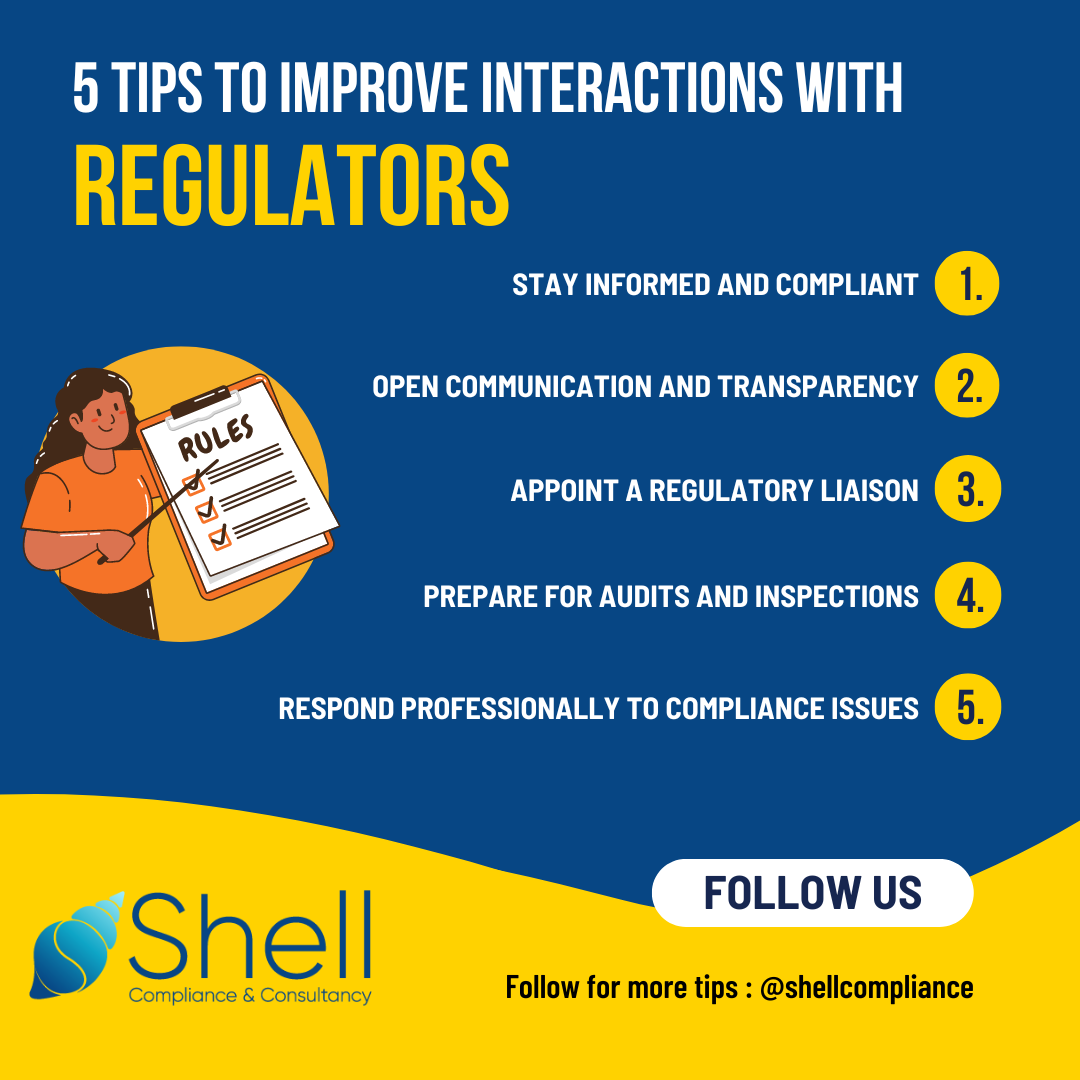5 Tips to Improve Interactions with Regulators
In the regulatory industry, it is essential to manage interactions with authority to ensure respect and compliance. Dealing with regulators can be a challenging yet necessary part of running a business or managing certain aspects of your life. It is even more important if your business has obligations to governmental authorities. Whether you're regularly engaging government agencies, industry-specific authorities, or compliance bodies, maintaining a positive relationship and navigating the regulatory landscape is essential. Here are five tips to help you respectfully correspond with regulators and support their objectives effectively:
Stay Informed and Compliant
Regulatory requirements are constantly evolving, so staying updated on the latest laws, rules, and guidelines relevant to your industry or situation is crucial. Regularly review official websites, attend industry conferences, and consult experts to ensure you understand and comply with all relevant regulations. Being proactive in complying demonstrates your commitment to meeting the necessary standards and can help build trust with regulators. It will further reduce frustrations felt by regulators when dealing with regulated entities that are ill-prepared and unaware of continued obligations. Expectedly, it will impact onsite inspections or reviews when it is evident that the business lacks applicable knowledge of responsibilities.
Open Communication and Transparency
Establish a transparent and open line of communication with regulators. Be responsive to their inquiries and requests for information. If you anticipate any compliance challenges or issues, inform them in advance and work together to find solutions. Building a cooperative relationship based on transparency can foster a more positive and collaborative regulatory environment. Understandably, the Board may caution against how much transparency is publicized. Be smart, understand your business and its ability to quickly resolve any prevalent issues or to sufficiently develop a plan for resolution. If the business is not in a position to rectify a problem in the short term, it is generally advisable to establish and document a plan. Be prepared to share with authorities. Further, if the solution is non-traditional, innovative, or falling into any grey area, it would be strongly advisable to proactively engage your regulatory for input before too much investment is made.
Appoint a Regulatory Liaison
Designate a specific person or team within your organization to serve as the primary point of contact with regulators. This individual should be knowledgeable about your operations and compliance matters. This person is often a senior compliance or legal professional. In some cases, the public relations officer or team is tasked with this role. Having a designated liaison streamlines communication and ensures consistency in your interactions with regulators. Depending on the size of your firm, it could also be multiple persons for multiple regulators.
Prepare for Audits and Inspections
Regulatory bodies often conduct audits and inspections to assess compliance. Be well-prepared for these events by maintaining organized and up-to-date records of relevant processes, transactions, and policies. Conduct internal audits regularly to identify and address any potential compliance gaps before regulators do. Being prepared and demonstrating your commitment to compliance can leave a positive impression on regulators. We will have an upcoming publication that will focus on how to prepare for an audit or inspection by regulators.
Respond Professionally to Compliance Issues
In the event of non-compliance or regulatory violations, respond professionally and promptly. Acknowledge any mistakes or shortcomings and present a detailed plan to address and rectify the issues. Taking responsibility and showing that you are actively working to rectify the situation can help mitigate potential penalties and maintain a positive relationship with regulators. If it is necessary to challenge or disagree with regulators, focus on the legislative or regulatory aspect of the disagreement. Too often, regulated entities damage relationships with regulators by being disrespectful, dishonest or insulting. It is better and more important to maintain a good relationship while standing up for your position of disagreement.
Remember that regulators are tasked with enforcing rules that often serve to protect the public interest. The regulators are positioned to uphold the law for everyone’s benefit within a specific industry or region. Remember we are working towards the same objective, fighting against criminal activities. By approaching your interactions with them in a respectful and cooperative manner, you can foster a more productive and positive regulatory experience.

